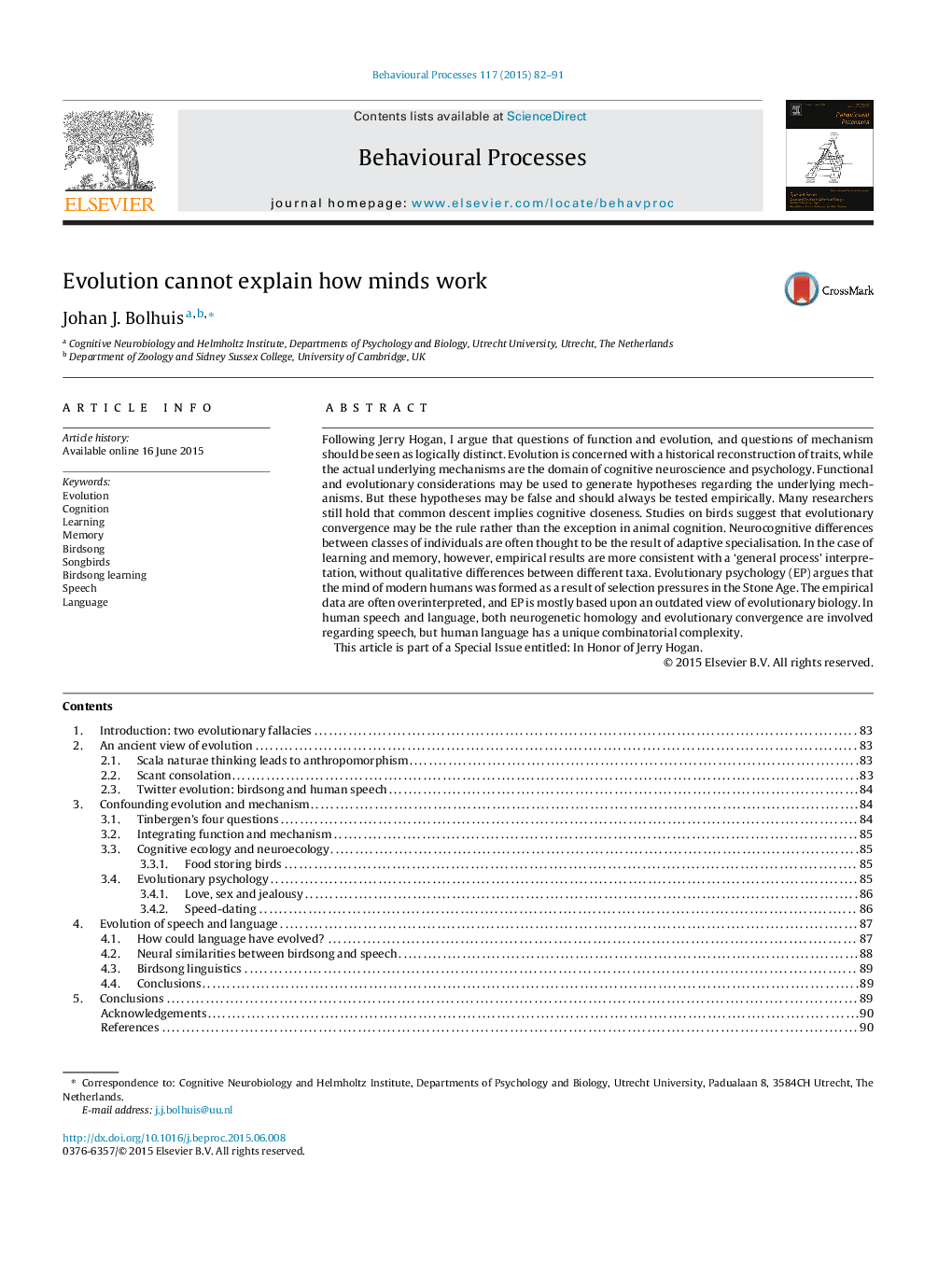| کد مقاله | کد نشریه | سال انتشار | مقاله انگلیسی | نسخه تمام متن |
|---|---|---|---|---|
| 2426558 | 1553163 | 2015 | 10 صفحه PDF | دانلود رایگان |
Following Jerry Hogan, I argue that questions of function and evolution, and questions of mechanism should be seen as logically distinct. Evolution is concerned with a historical reconstruction of traits, while the actual underlying mechanisms are the domain of cognitive neuroscience and psychology. Functional and evolutionary considerations may be used to generate hypotheses regarding the underlying mechanisms. But these hypotheses may be false and should always be tested empirically. Many researchers still hold that common descent implies cognitive closeness. Studies on birds suggest that evolutionary convergence may be the rule rather than the exception in animal cognition. Neurocognitive differences between classes of individuals are often thought to be the result of adaptive specialisation. In the case of learning and memory, however, empirical results are more consistent with a ‘general process’ interpretation, without qualitative differences between different taxa. Evolutionary psychology (EP) argues that the mind of modern humans was formed as a result of selection pressures in the Stone Age. The empirical data are often overinterpreted, and EP is mostly based upon an outdated view of evolutionary biology. In human speech and language, both neurogenetic homology and evolutionary convergence are involved regarding speech, but human language has a unique combinatorial complexity.This article is part of a Special Issue entitled: In Honor of Jerry Hogan.
Journal: Behavioural Processes - Volume 117, August 2015, Pages 82–91
